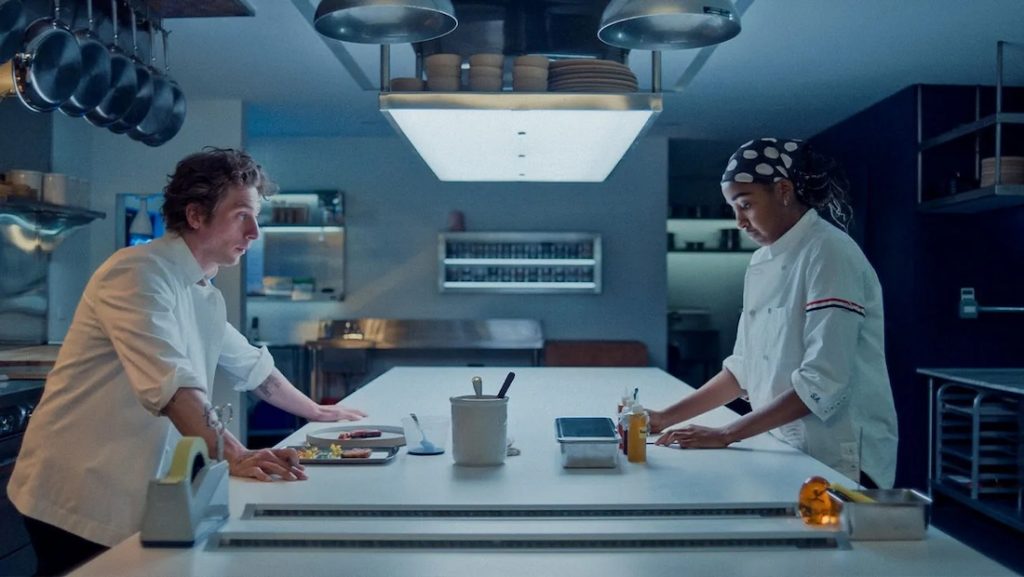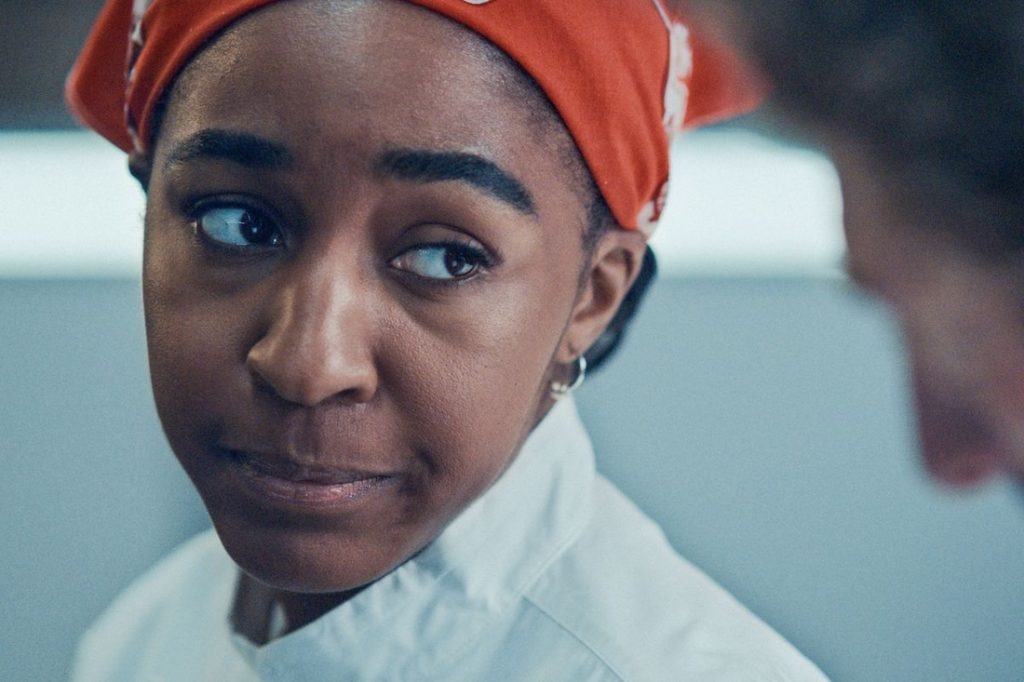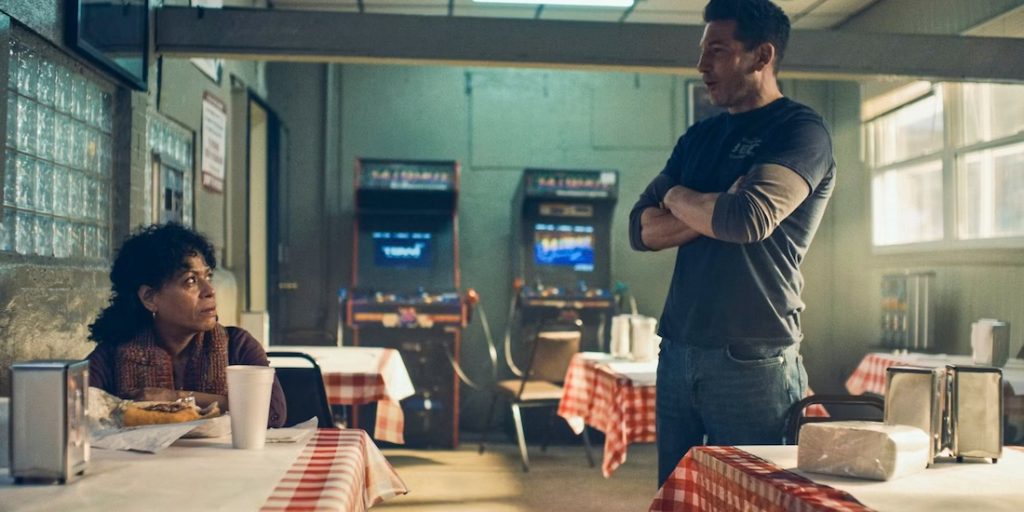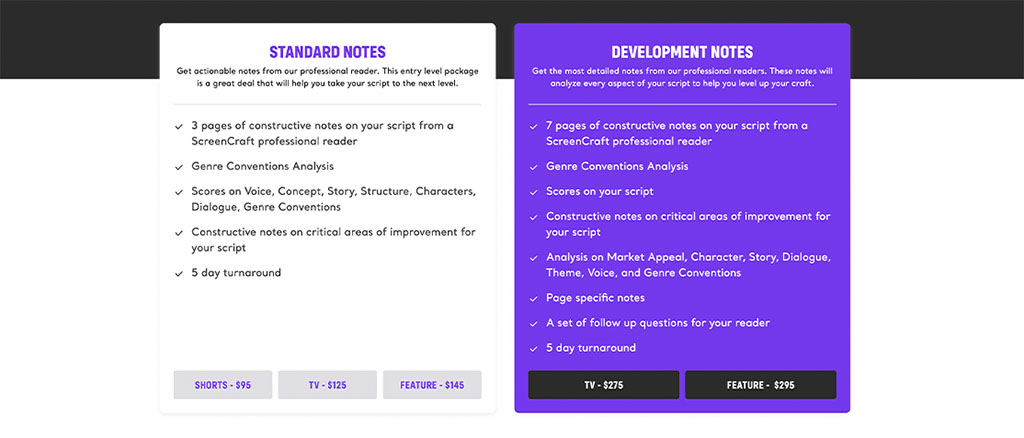FX’s The Bear had the most The Bear things happen to it the other night. Not only did the show receive a record number of Emmy nominations, 23 to be exact, but it was once again considered to be in the comedy category.
That is so The Bear.
Think about it. The show, created by Christopher Storer, has experienced massive success, especially in a genre that it kind of is but kind of isn’t, that you can’t help but get the sense that the show itself has some strange meta connection with Carmy.
Let’s go over how the theme of success vs. happiness and the genre identity crisis of both the show itself and its tortured protagonist become one big metaphysical work of culinary and cinematic genius.
Professional Success vs. Personal Happiness
There are many themes The Bear has touched on in the last three seasons, like family relationships, fear of failure, and passion, but there is one that reaches deeper into the layers of the show: professional success vs. personal happiness.
When we meet Carmy (Jeremy Allen White), he is a serious, focused, and incredibly tense award-winning chef who returns to Chicago to run the family restaurant, The Beef, after his brother’s suicide. However, as the show progresses, parts of his past, personality, and purpose begin to unfold, namely those centering on his family, which is constantly wreaking havoc and trauma through their utter dysfunction.
Carmy has aspirations to turn The Beef, into a prestigious high-end restaurant using the skills he learned from working in some of the finest kitchens in the world. He values perfection through discipline. He is laser-focused on his professional goals to the point that he abandons any opportunity to experience personal happiness, including connecting emotionally with his staff or finding love with his childhood friend Claire.

Jeremy Allen White and Ayo Edebiri in ‘The Bear’ (FX)
The Bear is very much like this — in its own way. The first two seasons of the show were met with a truckload of accolades and rave reviews from viewers and critics alike. It was fun. It was fast-paced. The characters were eccentric and interesting and every plot point whizzed by at a million miles a minute. Just tons and tons of professional success.
However, the third season is a little different. Gone are the chaotic scenes of pots and pans clanging, fires, gas leaks, blood, sweat, tears, ticking clocks, and Carmy running around screaming at everyone to get it the hell together in time for service. “Cousssiiinnnnnn!!??” “Yes, chef!”
This season is slower. More introspective. More static. It’s Carmy’s internal nightmare rather than his professional panic attack. And fans are not having it. Seriously. Despite it being Certified Fresh according to critics on Rotten Tomatoes, the third season has the lowest audience rating of all the show’s seasons at a meager 53%.
The show has success but still doesn’t give fans what they want (or what some of them want, anyway), opting instead to invite them to sit in the frozen ether of Carmy’s psyche, to wade through his fear, stress, and trauma alongside him — in a way, turning us all into meta-Carmy’s, or at least, meta-Bear employees.
Could the show have switched things up when there were murmurings from fans that the second season was slower than the first? Maybe. But it stayed the course. It remained laser-focused on its goal even if that meant feeling some pain from unhappy fans.
The show needs to see Carmy all the way through to the other side of his trauma and grief without him falling into the same trap that his brother Michael fell into. There needs to be catharsis and healing. That means the chaos that made the show so addictively fun to watch in the beginning won’t lead to the change its central character so desperately needs in the end.
The show seems dedicated to being the best sponsor any character (or fan) could ask for.

Ayo Edebiri in ‘The Bear’ (FX)
Carmy and The Bear’s Identity Crisis
Identity is an interesting theme in The Bear because it doesn’t hit you over the head. It’s very subtle. We think we know who Carmy is: he’s a scrappy Chicago native who went off and got fancy by working with the greatest chefs in the world. He’s a loving guy attempting to make his family’s restaurant a success. He tries so hard to break the cycle of trauma and abuse perpetuated by both his family and a former head chef (played by Joel McHale) by trying to run a respectful kitchen. Every ounce of his effort is put into perfection: perfect food, perfect presentation, perfect staff, perfect restaurant.
However, he’s the antithesis of perfection. He’s a wreck. He left Chicago to become a top-level chef because he felt rejected when Michael wouldn’t let him work at The Beef. The dude is stressed — all the time — because he’s trying to turn this dusty Italian sandwich shop in a working-class neighborhood into a fine dining establishment. He’s so furiously reactive to all the stress in his life that he has turned The Bear into a hostile work environment, ultimately becoming the very chef that killed his spirit and inspired his self-hatred.
Carmy knows who he wants to be, but just can’t get there. The trauma he’s experienced won’t allow him to. His father’s abandonment, his mother’s mental instability, his brother’s drug addiction and suicide, and the emotional abuse of his former head chef — all of these elements leave Carmy frozen in emotional shock, which is why Season 2 ends with him locked in the kitchen’s freezer. He’s forced to sit and wrestle with everything that torments him until he’s able to ask himself the most important questions he’ll have to answer in Season 4.
- “Do you really want the family sandwich shop to be a high-end restaurant, or is this just your way of proving your self-worth?
- “Are your culinary ambitions really more important than your happiness?

Liza Colón-Zayas and Jon Bernthal in ‘The Bear’ (FX)
The Bear is getting some flack (again) for categorizing itself as a comedy for the Emmys (again), so in the most front-facing way possible, yeah, the show itself has an identity crisis. Is it a comedy or is it a drama? Is it both? I think the answer is “yes, yes, and yes,” but that’s not even the issue. Its identity crisis isn’t about an Emmy category. It’s about the genre tropes the show jumps between.
This show is, at times, very much a dark, moody drama, while at other times, it is a comedy through and through. And it feels — weird. In the same way that shows like Shameless, Succession, and even The Sopranos blended comedic and dramatic conventions into their narratives, The Bear does it too, putting Fak family jokes and Carmy’s emotional unraveling into a blender and sometimes hitting a quick pulse, while other times hitting “liquify.”
The Bear is famous for its intensity and sometimes that intensity will begin on a comical level in a scene only to explode into something tragic and unavoidable, like your friend’s parent asking them multiple times to stop playing so rambunctiously until they finally blow their top and scream for them to go to their room. It’s hilarious at first, but then…it’s uncomfortably severe. This scene from Season 1 Ep. 7 “Review” demonstrates this perfectly.
Other times, though, it’s full drama. Sometimes it’s Syd making an omelet outside of the chaos of service to remind herself that cooking is her passion. You can see her almost trance-like tranquility in this scene:
Sometimes, The Bear is all comedy, like in this scene in which Richie gives Fak a job interview and it ends up being an argument about whether or not Fak is good at playing the keyboard until the two end up beating each other up throughout the restaurant until Carmy splashes them with water. (Literally one of Carmy’s only calm reactions to kitchen chaos.)
So, maybe it’s not that The Bear doesn’t have an identity crisis per se. Maybe the show itself is a meta-Carmy in that it’s everything all at once just like he is. It’s comedy and tragedy; it’s pain and pleasure. The show is a direct representation of the complexity of who Carmy is, a passionate and tortured artist with great love and even more rage. You can see the structure and pacing of The Bear tied so perfectly to Carmy’s constant fluctuation between depression and anxiety, and focus and passion. It’s Carmy’s life represented cinematically.
And isn’t that just life in general? Just a mashup of comedies and tragedies, some of which are so intertwined that those moments are just… both?
—
The Bear truly struck a chord with audiences with Carmy, Syd, Richie, and the rest of the crew. Even if you’re not a culinary genius or, like…even know how to crack an egg, the passion to succeed and the fight to overcome one’s trauma is as universal as… I don’t know… cracking an egg? We’ve all been there, and maybe the knee-jerk reaction to want more fast-paced kitchen scenes is some people’s way of saying, “Hey, maybe I’m not ready to go on this tedious trudge through Carmy’s trauma because I’m not ready to go on my own.” That’s okay. But the fact that the show itself leans into Carmy’s slow healing journey despite it being a bummer to fans almost feels like The Bear is self-aware. The show seems to actually care about its characters, giving them each their own solo episode, allowing them to be understood, loved by audiences, and healed in the process.
The Bear is doing for Carmy what his brother tried to do for him when he said “Let it rip”: believing in him.
Read More: The Surprising Similarities Between The Bear and Ted Lasso
Get actionable Drama Notes from a professional reader with real industry experience!
The post ‘The Bear’ is the Most Meta Show on TV appeared first on ScreenCraft.
Go to Source
Author: V Renée

